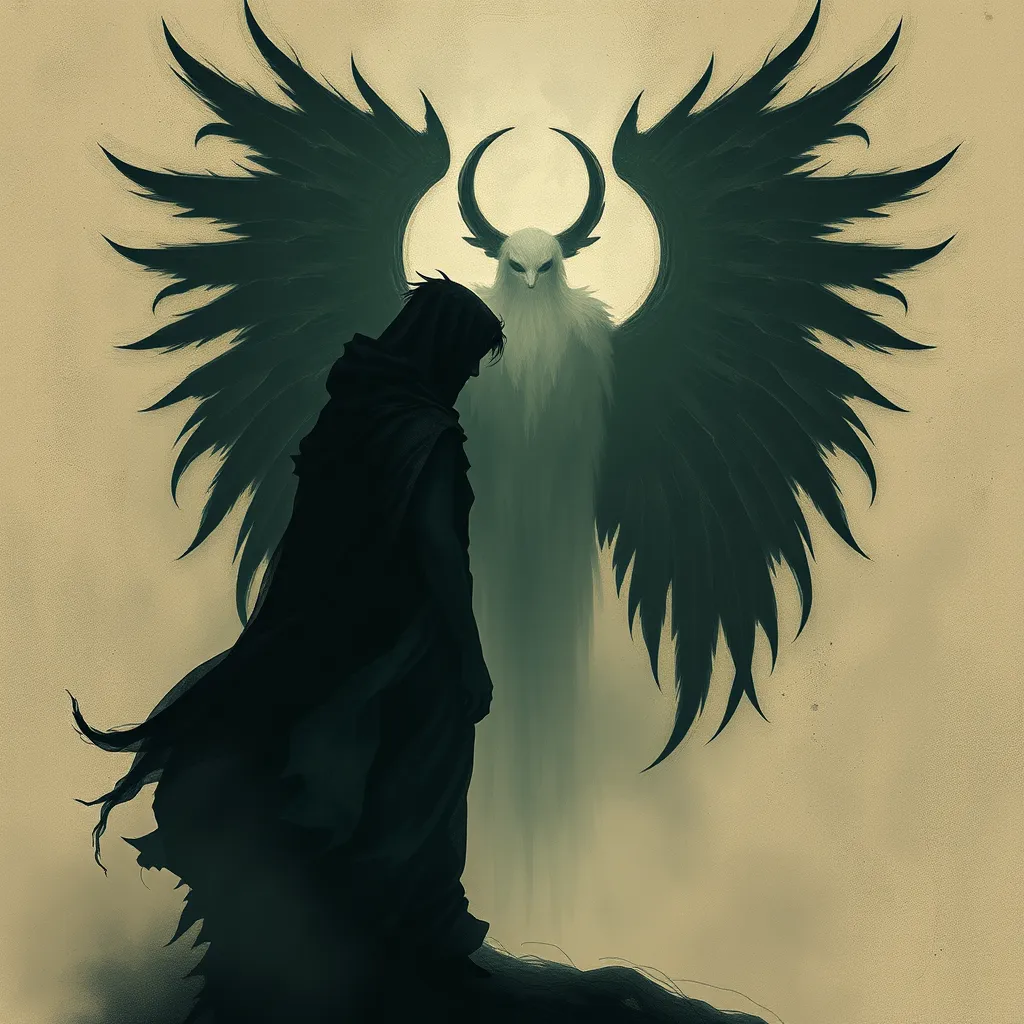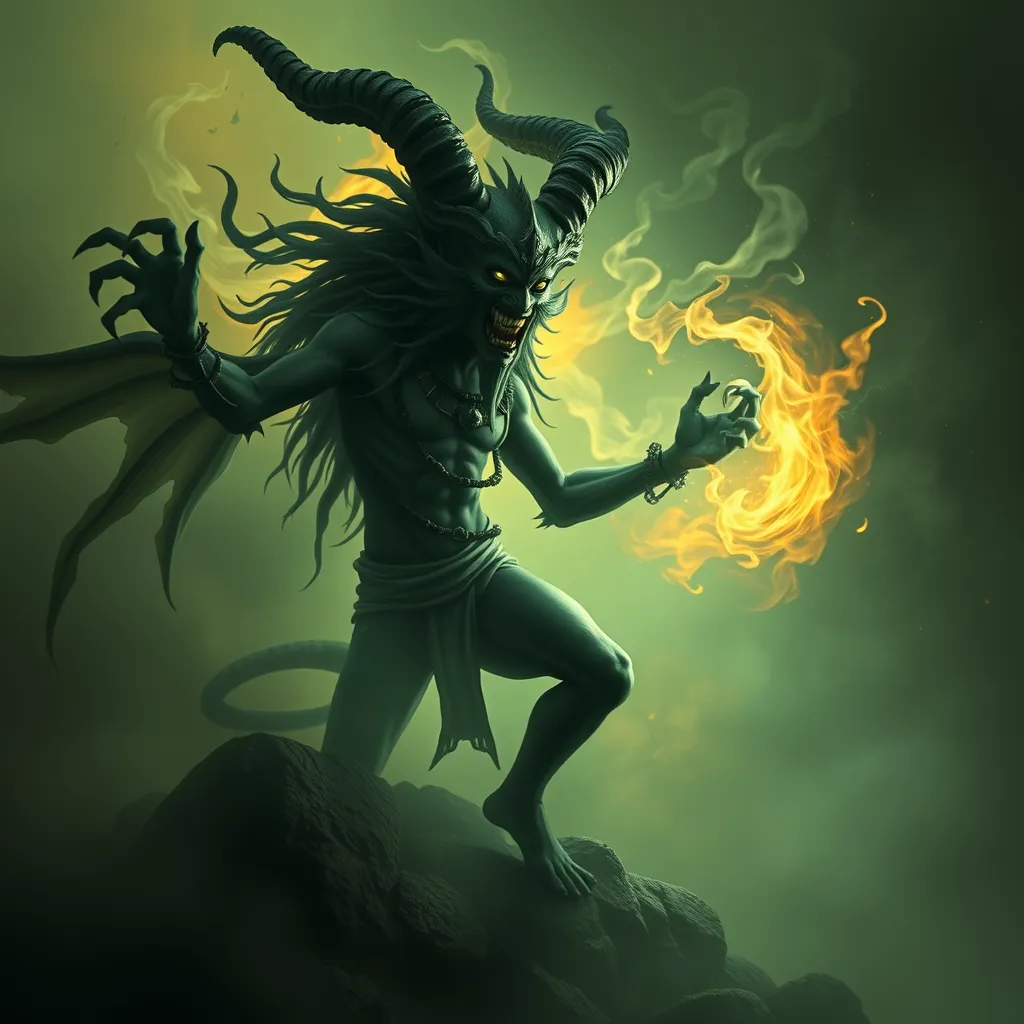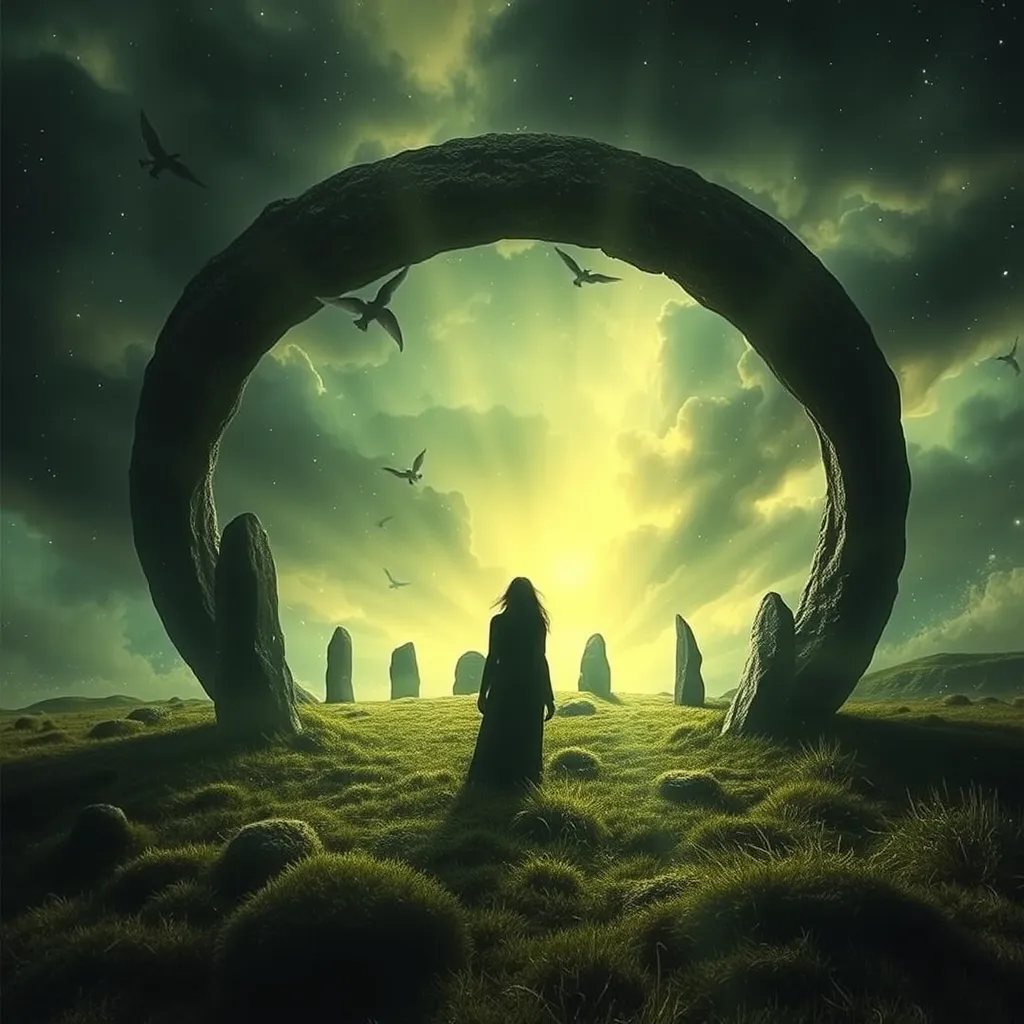The Banshee’s Shadow: Investigating the Psychological Impact of the Myth
I. Introduction
The Banshee, a haunting figure in Irish folklore, has long captivated imaginations with her mournful wails that foretell death. As a symbol deeply embedded in the cultural fabric of Ireland, the Banshee is more than just a ghostly apparition; she embodies complex themes of loss, grief, and the unknown. This article aims to explore the psychological implications of the Banshee legend, delving into how such myths shape cultural beliefs and influence mental states.
II. The Origins of the Banshee Myth
The Banshee’s origins can be traced back to ancient Irish traditions, where she was known as the ‘Bean Sí’ or ‘woman of the fairy mound.’ In this historical context, the Banshee was believed to be a spirit who warns families of impending death. Over time, the myth has evolved, with various regional interpretations and characteristics.
- Historical Context: The Banshee is often associated with noble families, believed to announce the deaths of their kin. This connection highlights the cultural significance of lineage and mortality in Irish society.
- Evolution of the Myth: As Ireland underwent social and political changes, the Banshee’s portrayal shifted. From a benevolent warning figure to a more sinister presence, her character reflects societal fears about death and loss.
- Key Characteristics: Common traits of the Banshee include her long hair, grey or white dress, and her haunting song, which varies regionally—from gentle weeping to terrifying shrieks.
III. Psychological Symbolism of the Banshee
The Banshee serves as a profound symbol of grief and loss, embodying the emotional turmoil faced by those dealing with death. Her presence is often interpreted through various psychological lenses.
- Symbol of Grief: The Banshee’s wail is a manifestation of mourning, representing the pain of losing a loved one. Her cries echo the deep sorrow experienced by families, making her a powerful figure in the landscape of grief.
- Archetypal Roles: Folklore often presents archetypes that resonate with our psychological experiences. The Banshee fits the archetype of the ‘Death Mother,’ symbolizing the dual nature of death as both an ending and a transformation.
- Fear of Death: The Banshee encapsulates humanity’s fear of the unknown. Her cries serve as a reminder of mortality, prompting individuals to confront their anxieties surrounding death.
IV. The Banshee’s Influence on Mental Health
The intersection of folklore and mental health is a rich area for exploration. The Banshee myth can have notable psychological effects on individuals and communities.
- Link Between Folklore and Mental Health: Myths like the Banshee can shape individuals’ perceptions of death and grief, influencing their mental health trajectories. Understanding cultural narratives can provide insight into coping mechanisms.
- Case Studies: There are documented instances of individuals who believe they have encountered a Banshee. Their experiences often reveal deep-seated fears and unresolved grief, demonstrating the myth’s psychological impact.
- Cultural Beliefs: The Banshee’s role in cultural beliefs highlights how communal narratives surrounding death can affect psychological well-being, offering both a source of comfort and anxiety.
V. The Banshee in Modern Media
As the Banshee has transitioned into modern media, her representation has evolved, reflecting contemporary understandings of grief.
- In Literature: Authors often use the Banshee as a metaphor for loss, allowing readers to engage with themes of mortality in a personal and relatable way.
- In Film and Art: The Banshee’s portrayal in films often emphasizes her eerie, haunting nature, while art may depict her as a tragic figure, prompting reflections on loss and mourning.
- Popular Culture: The Banshee continues to resonate in popular culture, influencing how society perceives grief and the supernatural, and affecting collective psychological responses to loss.
VI. Cross-Cultural Comparisons
Exploring similar myths in other cultures reveals universal themes of mourning and loss, illustrating how different societies process grief through mythic narratives.
- Similar Myths: Many cultures have figures akin to the Banshee, such as La Llorona in Latin American folklore or the Grim Reaper in Western traditions. Each represents the inevitability of death and the emotional responses it elicits.
- Universal Themes: Themes of mourning, loss, and the fear of the unknown are prevalent across cultures, suggesting a shared human experience that transcends geographic boundaries.
- Processing Grief: Different cultures utilize myths to articulate and process their grief, demonstrating how folklore serves as a collective coping mechanism.
VII. Therapeutic Perspectives
In therapeutic settings, folklore can be employed as a tool for discussing complex emotions surrounding grief and loss.
- Utilizing Folklore: Therapists can incorporate the Banshee myth into sessions to help clients articulate their feelings of loss and fear, using the narrative as a starting point for exploration.
- Tool for Discussion: The Banshee can facilitate conversations about grief, allowing individuals to express their emotions in a culturally relevant context.
- Integrating Myths: By integrating cultural myths into psychological practice, therapists can enhance their understanding of clients’ backgrounds and beliefs, fostering a more holistic approach to mental health.
VIII. Conclusion
The Banshee myth holds significant psychological relevance, serving as a powerful symbol of grief and loss. As we explore the Banshee’s impact on mental health, it becomes evident that folklore plays a crucial role in shaping our understanding of human emotions. The enduring power of such myths encourages further research into their relationship with mental health, offering valuable insights into the complexities of grief and the human experience.



